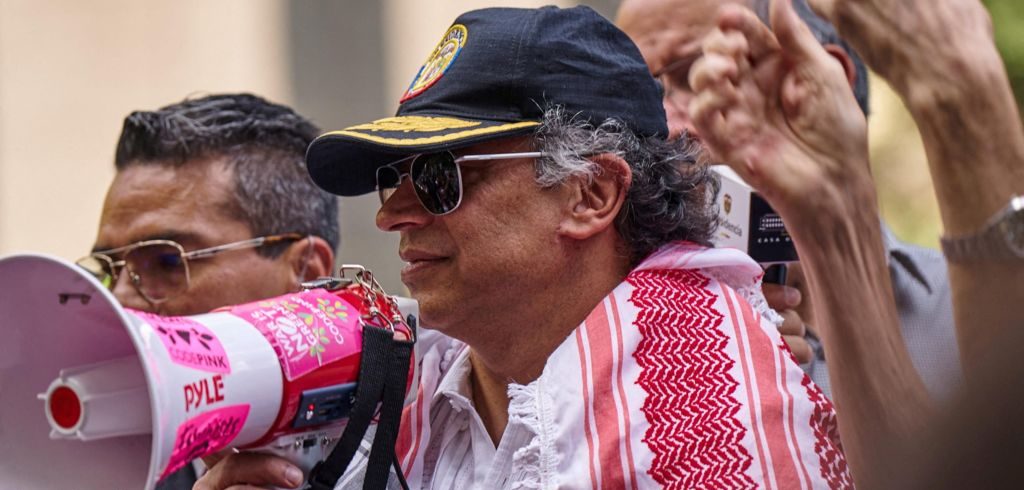- The US revoked Colombia President Gustavo Petro’s visa after a pro-Palestinian street protest in New York.
- The State Department cited Petro’s actions as reckless and incendiary.
- Petro had criticised US military operations in the Caribbean earlier in the week.
- The Colombian president addressed a large crowd, urging global soldiers to act independently of US orders.
- The incident reflects growing tensions between Petro’s left-wing administration and Washington.
- Similar US visa restrictions have affected Palestinian leaders attending the UN General Assembly.
The United States has officially revoked the visa of Colombia’s President Gustavo Petro after his participation in a pro-Palestinian street protest in New York. The move comes in response to actions deemed incendiary by the State Department.
Petro was already returning to Bogota from New York at the time of the announcement. Earlier in the week, the Colombian leader had publicly criticised US military operations in the Caribbean, drawing comparisons to tyranny in an interview with international media.
You Will Be in Trouble If You Allow Your Mother and Wife to be Friends – Counsellor Lutterodt
During the New York protest, Petro addressed a large crowd with a megaphone, urging global military forces to act in ways that challenge US directives, according to translations of his remarks. The State Department labelled his behaviour as reckless and a threat to public order, prompting the visa revocation.
The decision has ignited diplomatic debate, with some Colombian officials suggesting the US action unfairly targeted Petro while protecting other world leaders.
The move also highlights growing tensions between Petro’s administration and Washington, as Colombia continues to navigate international scrutiny over its role in global drug production and regional security.
If Bawumia wins elections, graduates will receive GHC8,000 as monthly salaries – Chairman Wontumi
In a broader context, the US recently denied visas to the Palestinian president Mahmoud Abbas and 80 other Palestinian officials, preventing them from attending the UN General Assembly, further signalling a strict stance on foreign leaders who take controversial positions during high-profile events in the US.

